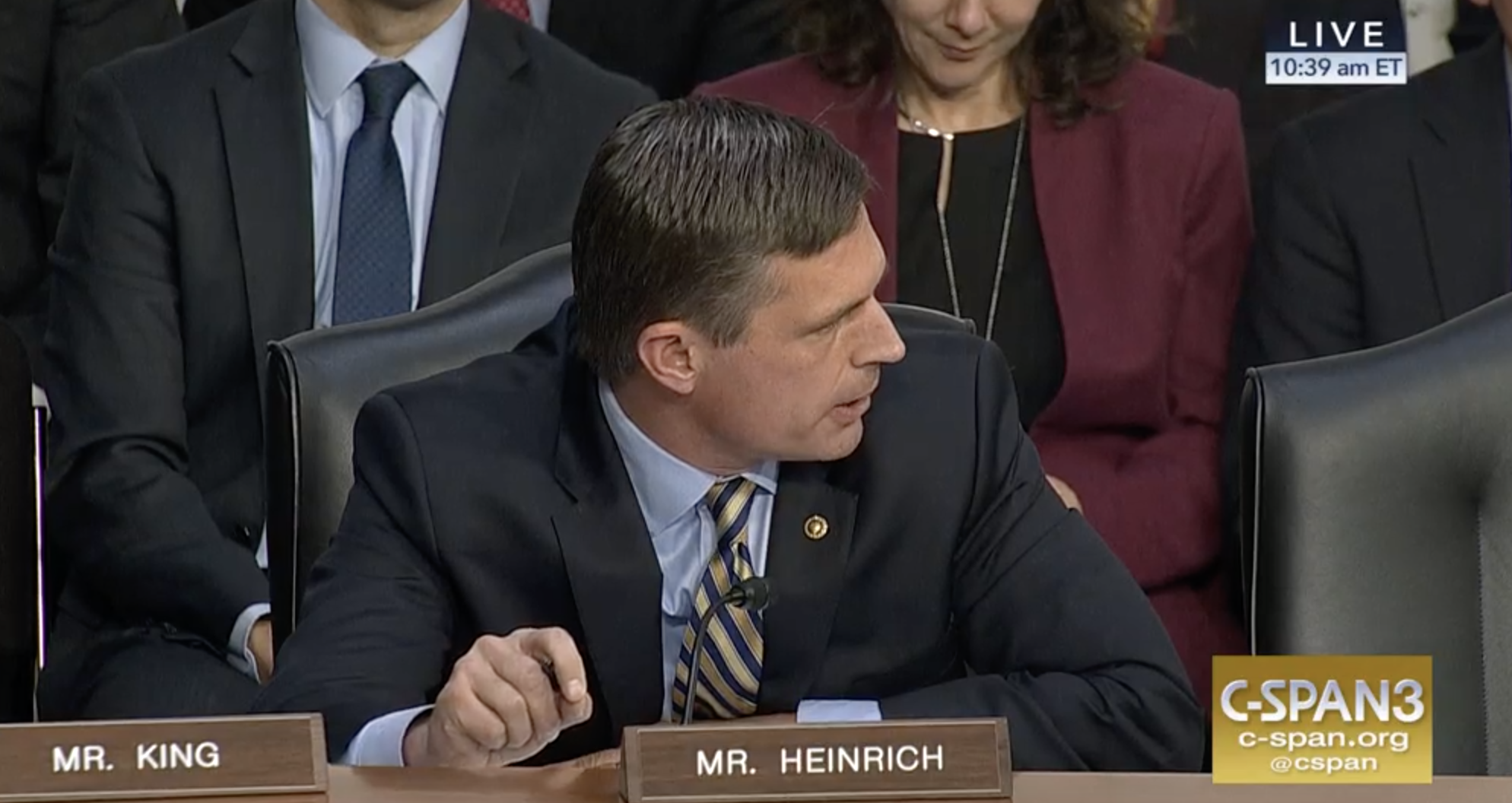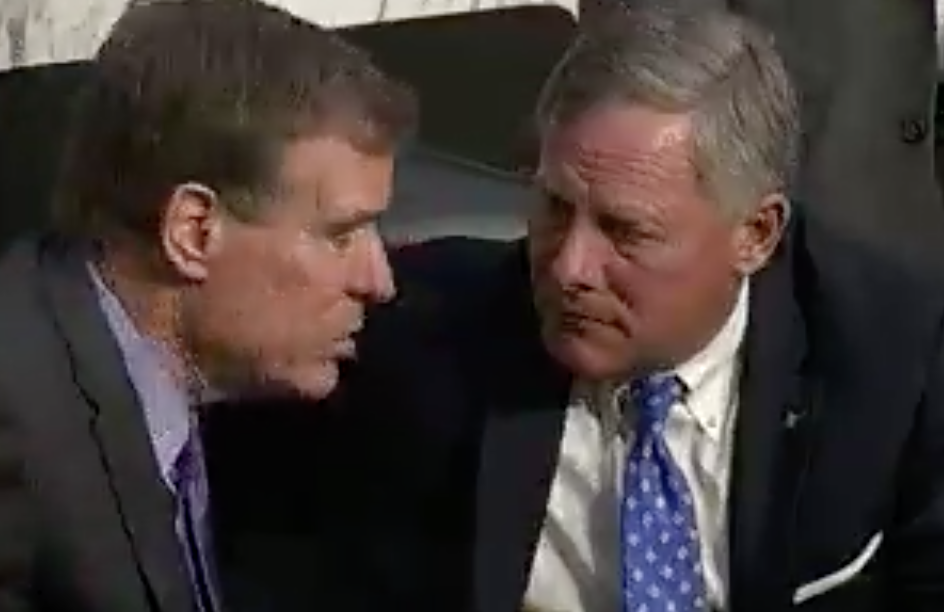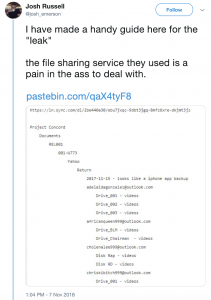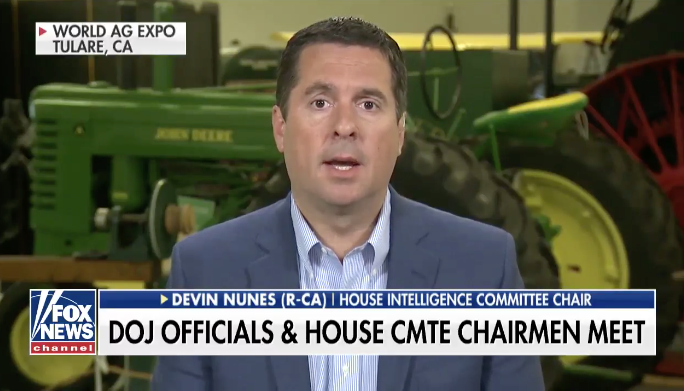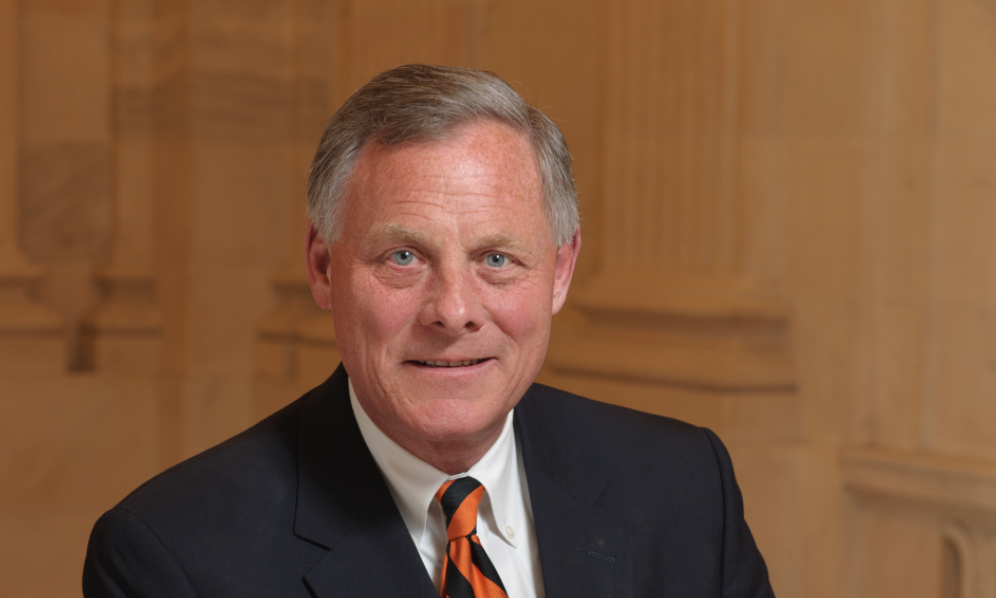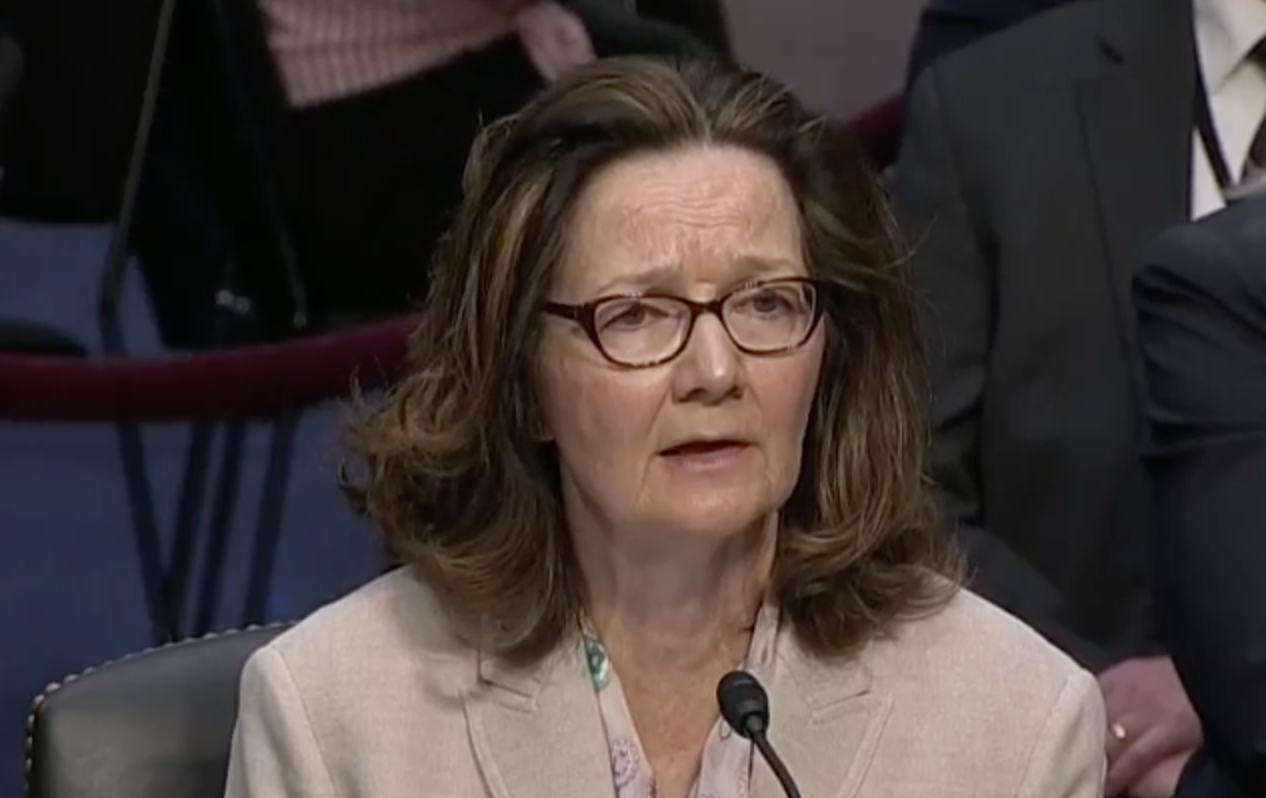Revisiting the First Time President Trump Blabbed Out Classified Information for Political Gain
I’d like to revisit what might be the first time in his presidency that Donald Trump blabbed out highly classified information for political gain. Trump appears to have endangered the investigation into CIA’s stolen hacking tools, all to blame Obama for the leak.
It happened on March 15, 2017, during an interview with Tucker Carlson.
Amid a long exchange where Tucker challenges Trump, asking why he claimed — 11 days earlier — that Obama had “tapped” Trump Tower without offering proof, Trump blurted out that the CIA was hacked during the Obama Administration.
Tucker: On March 4, 6:35 in the morning, you’re down in Florida, and you tweet, the former Administration wiretapped me, surveilled me, at Trump Tower during the last election. Um, how did you find out? You said, I just found out. How did you learn that?
Trump: I’ve been reading about things. I read in, I think it was January 20th, a NYT article, they were talking about wiretapping. There was an article, I think they used that exact term. I read other things. I watched your friend Bret Baier, the day previous, where he was talking about certain very complex sets of things happening, and wiretapping. I said, wait a minute, there’s a lot of wiretapping being talked about. I’ve been seeing a lot of things. Now, for the most part I’m not going to discuss it because we have it before the committee, and we will be submitting things before the committee very soon, that hasn’t been submitted as of yet. But it’s potentially a very serious situation.
Tucker: So 51,000 people retweeted that, so a lot of people thought that was plausible, they believe you, you’re the president. You’re in charge of the agencies, every intelligence agency reports to you. Why not immediately go to them and gather evidence to support that?
Trump: Because I don’t want to do anything that’s going to violate any strength of an agency. You know we have enough problems. And by the way, with the CIA, I just want people to know, the CIA was hacked and a lot of things taken. That was during the Obama years. That was not during, us, that was during the Obama situation. Mike Pompeo is there now, doing a fantastic job. But we will be submitting certain things, and I will be perhaps speaking about this next week. But it’s right now before the Committee, and I think I want to leave it at that. I have a lot of confidence in the committee.
Tucker: Why not wait to tweet about it until you can prove it? Does it devalue your words when you can’t provide evidence?
Trump: Well because the NYT wrote about it. You know, not that I respect the NYT. I call it the failing NYT. They did write on January 20 using the word wiretap. Other people have come out with —
Tucker: Right, but you’re the President. You have the ability to gather all the evidence you want.
Trump: I do, I do. But I think that frankly we have a lot right now and I think if you watch, uh, if you watched the Brett Baier and what he was saying and what he was talking about and how he mentioned the word wiretap, you would feel very confident that you could mention the name. He mentioned it and other people have mentioned it. But if you take a look at some of the things written about wiretapping and eavesdropping, and don’t forget when I say wiretap, those words were in quotes, that really covers, because wiretapping is pretty old fashioned stuff. But that really covers surveillance and many other things. And nobody ever talks about the fact that it was in quotes but that’s a very important thing. But wiretap covers a lot of different things. I think you’re going to find some very interesting items over the next two weeks. [my emphasis]
It was clear even at the time that it was a reference to the Vault 7 files, now alleged to have been leaked to WikiLeaks by Joshua Schulte; the first installment of files were released eight days earlier.
The next day, Adam Schiff, who as the then-Ranking HPSCI member, likely had been briefed on the leak, responded to Trump’s comments and suggested that, while Trump couldn’t have broken the law for revealing classified information, he should nevertheless try to avoid releasing it like this, without any kind of consideration of the impact of it.
Last night, the President stated on Fox News that “I just wanted people to know, the CIA was hacked, and a lot of things taken–that was during the Obama years.” In his effort to once again blame Obama, the President appears to have discussed something that, if true and accurate, would otherwise be considered classified information,
It would be one thing if the President’s statement were the product of intelligence community discussion and a purposeful decision to disclose information to the public, but that is unlikely to be the case. The President has the power to declassify whatever he wants, but this should be done as the product of thoughtful consideration and with intense input from any agency affected. For anyone else to do what the President may have done, would constitute what he deplores as “leaks.”
Trump did reveal information the CIA still considered classified. At the very least, by saying that CIA got hacked, he confirmed the Vault 7 documents were authentic files from the CIA, something the government was not otherwise confirming publicly at that time. (Compare Mike Pompeo’s oblique comments about the leak from a month later.)
His reference to the volume of stolen files may have been based on what the CIA had learned from reviewing the initial dump; court filings make it clear the CIA still did not know precisely what had been stolen.
His reference to a hack, rather than a leak, is an interesting word choice, as the compromise has usually been called a leak. But Schulte’s initial search warrants listed both Espionage and the Computer Fraud and Abuse Act, meaning the government was treating it as (partly) a hacking investigation. And some of the techniques he allegedly used to steal the files are the same that hackers use to obfuscate their tracks (which is unsurprising, given that Schulte wrote some of the CIA’s obfuscation tools).
Perhaps the most damning part of Trump’s statement, however, was the main one: that the theft had taken place under Obama. WikiLeaks’ initial release was totally noncommittal about when they obtained the files, but said it had been “recent[].” By making it clear that the government knew the theft had taken place in 2016 and not more “recently,” Trump revealed a detail that would have made it more likely Schulte would realize they believed he was the culprit (though he knew from the start he’d be a suspect), given that he’d left the agency just days after Trump was elected.
The most damning part of all of this, though, is the timing. Trump made these comments at an unbelievably sensitive time in the investigation.
Tucker did the interview while accompanying Trump to Detroit on March 15, 2017, which means the interview took place sometime between 10:50 AM and 3:30 PM (Tucker said the interview happened at Willow Run Airport, but this schedule says he flew into DTW). Unless it was given special billing, it would have aired at 9PM on March 15.
That means Trump probably made the comments as the FBI was preparing a search of Schulte’s apartment, the first step the FBI took that would confirm for Schulte that he was the main suspect in the leak. Trump’s comments likely aired during the search, before the moment Schulte left his apartment with two passports while the search was ongoing.
CIA had had a bit of advanced warning about the leak. In the lead-up to the leaks (at least by February 3), a lawyer representing Julian Assange, Adam Waldman, was trying to use the Vault 7 files to make a deal with the US government, at first offering to mitigate the damage of the release for some vaguely defined safe passage for Assange. The next day, WikiLeaks first hyped the release, presumably as part of an attempt to apply pressure on the US. Shortly thereafter, Waldman started pitching Mark Warner (who, with Richard Burr, could have granted Assange immunity in conjunction with SSCI’s investigation). On February 17, Jim Comey told Warner to stop his negotiations, though Waldman would continue to discuss the issue to David Laufman at DOJ even after the initial release. Weeks later, WikiLeaks released the initial dump of files on March 7.
An early WaPo report on the leak (which Schulte googled for its information about what the CIA knew before WikiLeaks published) claimed that CIA’s Internal Security had started conducting its own investigation without alerting FBI to the leak (though obviously Comey knew of it by mid-February). The same report quoted a CIA spox downplaying the impact of a leak it now calls “catastrophic.”
By March 13, the day the FBI got its first warrant on Schulte, the FBI had focused on Schulte as the primary target of the investigation. They based that focus on the following evidence, which appears to incorporate information from the CIA’s own internal investigation, an assessment of the first document dump, and some FBI interviews with his colleagues in the wake of the first release:
- The FBI believed (and still maintains) that the files were stolen from the onsite backup server
- Schulte was one of a small group of SysAdmins who had privileges to that server (in the initial warrant they said just three people did but have since revised the number to five)
- The FBI believed (mistakenly) that the files were copied on March 7, 2016, a time when one of the other two known SysAdmins was offsite
- Schulte had had a blow-up with a colleague that led to him souring on his bosses
- During the period the CIA was investigating that blow-up, Schulte had reset his administrative privileges to restore his access to the backup server and one project he was working on
- As part of his August security clearance renewal, some of Schulte’s colleagues said they thought he could be subject to coercion and was not adhering to rules on removable media
- Just before he left, Schulte created two documents claiming to have raised concerns about the security of the CIA’s servers that (the government claims) he didn’t actually raise
- Names identifying the two other SysAdmins who had access to the backup server, but not Schulte’s, were included in the initial release
- In six days since the initial Vault 7 release, Schulte had contacted colleagues and told them he thought he’d be a suspect but was not the leaker
Having obtained a warrant based off that probable cause, on the afternoon of March 13, FBI agents went to conduct a covert search of Schulte’s apartment. The FBI was trying to conduct the search before a trip to Mexico Schulte was scheduled to take on March 16, which (as the affidavit noted) would have been only his second trip outside the US reflected in DHS records. But when the FBI got to Schulte’s apartment, they found a slew of computer devices (listed at PDF 116), making the covert search impractical. So overnight, they obtained a second warrant for an overt search; the FBI obtained that warrant at 1:36 AM on March 14. During that same overnight trip to the magistrate, the FBI also obtained warrants for Schulte’s Google, Reddit, and GitHub accounts.
There’s a lack of clarity about this detail in the public record: the warrant is dated March 14, but it is described as the “March 15 warrant.” The overt search continued through the night in question, so it could either be March 14-15 or March 15-16. The government’s response to Schulte’s motion to suppress the search says, “The Overt Warrant was signed during the early morning hours of March 14, 2017, and the FBI executed the warrant the same day.” But a May 5, 2017 affidavit (starting at PDF 129) says the overt search of Schulte’s apartment took place on March 15.
Whatever day the search happened, it appears that the search started when the lead agent approached Schulte in the lobby of Bloomberg, perhaps as he was leaving work, and asked if he had a role in the leak, which Schulte denied. (This conversation is one basis for Schulte’s false statements charge; the Bill of Particulars describing the interview says it took place on March 15.) The agent got Schulte to confirm he was traveling to Mexico on March 16, then got Schulte to let them into his apartment (Bloomberg is at 120 Park Avenue; Schulte lived at 200 E 39th Street, five blocks away). The search of Schulte’s apartment went through the night. Sometime between 10 and 11 PM, Schulte left his apartment, telling the FBI Agents he’d return around 11:30 PM. By 12:15 AM he hadn’t returned, so the lead FBI Agent went and found him leaving Bloomberg. They told him they had found classified information in his apartment, and asked for his passports. He went back to his workstation to retrieve them, and voluntarily handed them over. The affidavit describes Schulte being put on leave by Bloomberg on March 16, the last day he reported to work at Bloomberg (which would be consistent with the search taking place on the night of March 15-16).
If the search took place overnight on March 14-15, Trump’s statements might have reflected knowledge the search had occurred (and that FBI had found classified information in Schulte’s apartment that would sustain an arrest on false statements and mishandling classified information charges, if need be). If the search took place overnight on March 15-16 (which seems to be what the record implies), it would mean Trump made the comments before the search and they would have been aired on Fox News during it.
In other words, Trump may well have made the comments at a time when FBI was trying to avoid giving Schulte any advance notice because they were afraid he might destroy evidence.
In addition, Trump undoubtedly made the comments (and Schiff highlighted the significance of them) before Schulte had follow-up interviews on March 20 and 21, at which he denied, among other things, ever making CIA’s servers more vulnerable to compromise. If Schulte had read Trump’s comment he’d be more worried about anything akin to hacking.
The question is, how much of what Trump said reflected real knowledge of the investigation, and to what degree should he have known that blurting this out could be unbelievably damaging to the investigation?
Given Trump’s imprecision in speech, his comments could derive entirely from the Vault 7 release itself, or at least a really high level briefing (with pictures!) of the compromise and CIA’s efforts to mitigate it.
But there are two pieces of evidence that suggest Trump may have been briefed in more detail about Schulte as a target.
Jim Comey testified on June 8, 2017 that, in addition to asking him to, “let this [Flynn thing] go,” Trump had asked him about a classified investigation, but that conversation was entirely professional.
WARNER: Tens of thousands. Did the president ever ask about any other ongoing investigation?
COMEY: No.
WARNER: Did he ever ask about you trying to interfere on any other investigation?
COMEY: No.
WARNER: I think, again, this speaks volumes. This doesn’t even get to the questions around the phone calls about lifting the cloud. I know other members will get to that, but I really appreciate your testimony, and appreciate your service to our nation.
COMEY: Thank you, Senator Warner. I’m sitting here going through my contacts with him. I had one conversation with the president that was classified where he asked about our, an ongoing intelligence investigation, it was brief and entirely professional.
Obviously there were a ton of investigations and this conversation could have taken place after Trump made the public comments. But the Vault 7 investigation would have been one of the most pressing investigations in the months before Comey got fired.
More directly on point, in his Presumption of Innocence blog, Schulte describes the interactions with the FBI during the search — which are consistent with them taking place on March 15 — this way (he has not sought to suppress the statements he made that night, which suggests his claims of coercion aren’t strong enough to impress his attorneys):
The FBI set an artificial and misguided deadline on the night before I was to depart NYC for Cancun to prevent me from leaving the country. Despite my insistence with them that the notion someone would flee the country AFTER the publication literally made no sense—if it were me communicating with WikiLeaks then obviously I would have made damn sure to leave BEFORE it happened—they were persistent in their belief that I was guilty. The FBI literally told me that everyone ”up to the top” knew we were having this conversation and that “they” could not afford to let me leave the country. “They” could not afford another national embarrassment like Snowden. “They” would not, under any circumstances, allow me to leave the country. The FBI were prepared and willing to do anything and everything to prevent me from leaving the country including threaten my immediate arrest arrest unless I surrendered my passport. I did NOT initially consent, but the FBI held me against my will without any arrest warrant and even actively disrupted my attempts to contact an attorney. Intimidated, fearful, and without counsel, I eventually consented. I was immediately suspended from work
Schulte’s an egotist and has told obvious lies, especially in his public statements attempting to claim innocence. But if it’s true that the FBI agents told him everyone “up to the top” knew they were having the conversation with him on March 15, it might reflect knowledge that people at least as senior as Comey or Sessions or Pompeo knew the FBI was going to conduct an overt search with one goal being to prevent Schulte from leaving the country. And given the purported reference to Snowden and the way the entire government pursued him, it is not impossible that Trump had been asked to authorize Schulte’s arrest if he didn’t surrender his passports.
In other words, it is certainly possible that when Trump boasted that the CIA’s hacking tools had been stolen under Obama and not under his Administration (an interesting claim to begin with, given the delay in CIA alerting the FBI that WaPo reported), he had been briefed about Schulte within the last 48 hours or even that morning.
To be clear, I’m not suggesting that this comment was a deliberate attempt to sabotage the FBI investigation. Trump has a habit of mindlessly repeating whatever he has heard most recently, so if Trump were briefed on the investigative steps against Schulte on the 14th or 15th, it’s not surprising he brought it up when sitting with Tucker mid-day on the 15th, particularly given that they were discussing surveillance.
But imagine how this would look to the FBI as Trump started engaging in outright obstruction of the Russian investigation, particularly by firing Comey. There’s nothing in the public record that suggests a tie between Schulte’s leaks and Russia. But Schulte’s leaks (most notably the Marble Framework he authored) not only would have made it easier for Russia to identify CIA’s Russian targets, but they would have forced CIA to rebuild during a period it was trying to figure out what had happened in 2016 (and NSA would be in the same position, post Shadow Brokers). When the FBI was trying to keep their focus on Schulte secret for one more day so they could get to his apartment before he started destroying things, Trump sat before a TV camera and made a comment that might have alerted Schulte the FBI did, indeed, believe he was the culprit.
And Trump did so all to blame Obama for a catastrophic leak rather than himself.


